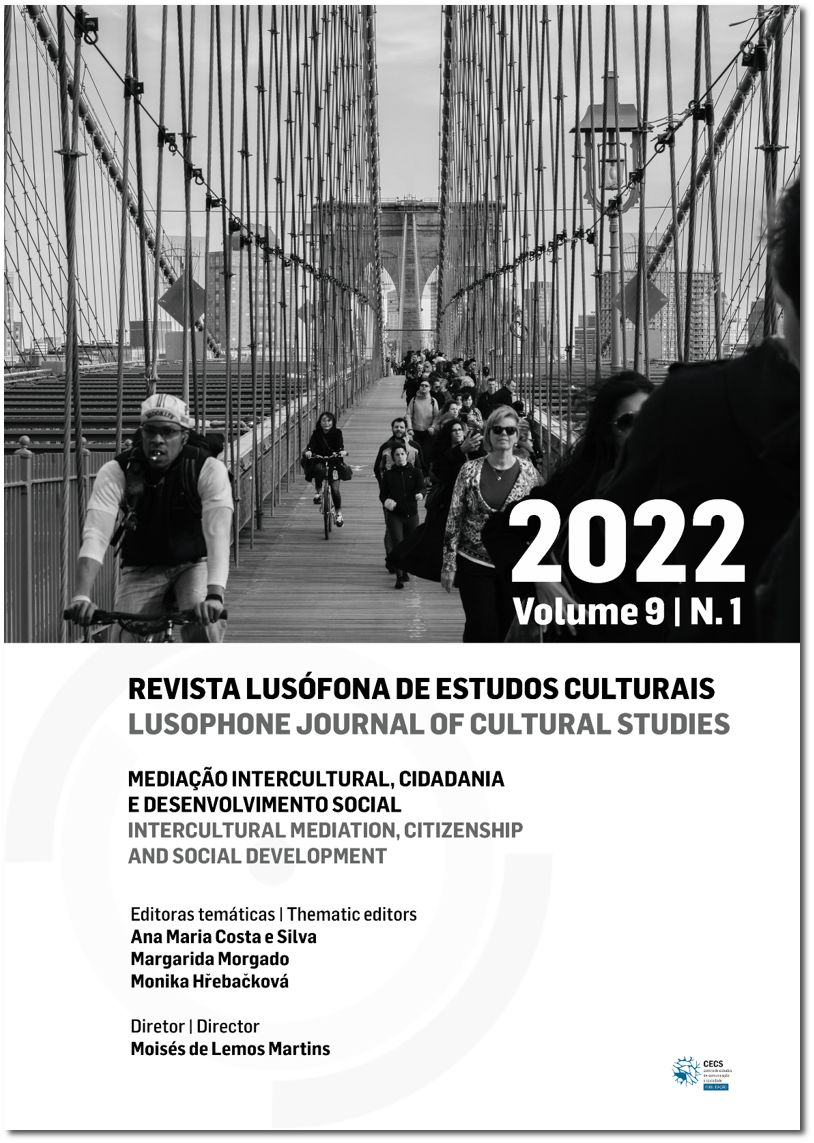Risk Tourism Within Viral Society: A Study Using Hybrid Discourse Analysis
DOI:
https://doi.org/10.21814/rlec.3671Keywords:
risk society, viral society, viral risk tourism, hybrid discourse analysis, alphabet of interconceptual relationsAbstract
In recent decades, sociologist Ulrich Beck (1992) has been warning about the risk society in which we operate today, which includes risks that are not only conjunctural but essentially structural, such as pollution and global warming. Recently, contemporaneity faces a new serious risk, the pandemic caused by COVID-19, which seems to be transforming our social formations into a viral society. In order to understand these social processes and sociological questions, the present text draws attention to one of the most relevant social and intercultural mediations in the current social framework, the articulation between the coronavirus pandemic and tourist activities. A case study deals here with the discourse produced about such themes by digital social network Wikipedia. This study is contextualized by theoretical and practical reflections from tourism studies and supported by ideas such as “viral risk” and “viral risk tourism”. A sample of content extracted from Wikipedia is analyzed and interpreted through a qualitative and quantitative method developed by the author, named “hybrid discourse analysis”, which uses, among other interpretive tools, the “alphabet of interconceptual relations”.
Downloads
References
Andrade, P. (1985). Para uma sociologia da documentação: Sensibilização à necessidade da sua construção. In I Congresso Nacional de Bibliotecários, Arquivistas e Documentalistas: A informação em tempo de mudança (Vol. II, pp. 421–450). BAD.
Andrade, P. (1991). A taberna mediática, local reticular de negociações sociais e sociológicas. Revista Crítica de Ciências Sociais, (33), 265–286. http://hdl.handle.net/10316/11715
Andrade, P. (2002). Some synthetic ideas to work with qualitative analysis software. Atalaia/Intermundos, (12/13), 165–174. http://hdl.handle.net/1822/29994
Andrade, P. (2006a). Net art and hybridosphere: The hybrilog as blogart. In L. Dopico Arneiros & A. Marcos (Eds.), Terceira Conferencia Internacional de Arte Electrónico e Dixital : “Conectando fronteiras”: Arte + tecnoloxía + ciencia + sociedade (pp. 137–143). Artech. http://hdl.handle.net/10400.2/1971
Andrade, P. (2006b). A sub-version of writing and of citizenship: The blog’s auto-writing and the hytrilog as trans-writing. In P. Andrade, H. Dória, A. Galera, & F. Cascais (Eds.), Jardins no corpo (pp. 21–26). Apenas Livros. http://hdl.handle.net/1822/29974
Andrade, P. (2007a). O alfabeto de relações universais (ARU). Revista de Comunicação e Linguagens, (38), 143–155.
Andrade, P. (2007b). A sociedade da investigação e do jornalismo: Boas práticas de cidadania participativa através da internet móvel e do social bookmarking. Anuário Internacional de Comunicação Lusófona, 307–312. http://www.lasics.uminho.pt/ojs/index.php/anuario/article/view/732
Andrade, P. (2011a). A hibridação das literacias: Métodos geoneológicos na sociedade da investigação. In S. Pereira (Ed.), Atas do Congresso Nacional “Literacia, Media e Cidadania” (pp. 71–89). Centro de Estudos de Comunicação e Sociedade. http://www.lasics.uminho.pt/ojs/index.php/lmc/article/viewFile/454/498
Andrade, P. (2011b). Sociologia semântico-lógica da web 2.0/3.0 na sociedade da investigação: Blogues, wikis, mundos/museus virtuais e redes sociais semântico-lógicas. Caleidoscópio.
Andrade, P. (2013). Sociologie sémantico-logique des ruines: Pour une hermeneutique hybride de la ruine à la web 2.0 et à la web 3.0. Sociétés, (120), 105–119. https://doi.org/10.3917/soc.120.0105
Andrade, P. (2014). Hybridization and postcolonialism. In M. M. Baptista & S. V. Maia (Eds.), Colonialisms, post-colonialisms and lusophonies: Proceedings of the 4th International Congress in Cultural Studies (pp. 523–527). Universidade de Aveiro; Universidade do Minho. http://hdl.handle.net/1822/44935
Andrade, P. (2015). Hybridologie. In M. Veyrat (Ed.), 100 notions sur les arts numériques (pp. 179–180). Les Éditions de l’Immatériel.
Andrade, P. (2016). GeoNeoLogical novel and other hybrimedia experiments: Or how to use hybrid methods such as hybrid discourse analysis (HDA) within a knowledge base. MATLIT, 4(2), 157–181. https://doi.org/10.14195/2182-8830_4-2_8
Andrade, P. (2020). Cultural resistance to covid-19: An encyclopedia of public art for artists and tourism publics? Cadernos de Arte Pública, 2(2), 57–74. https://doi.org/10.48619/cap.v2i2.215
Andrade, P. (2021). Viral urban tourism within viral society: Sociological touring guides using apps and e-books. In H. Griffin (Ed.), International conference connections: Exploring heritage, architecture, cities, art, media. AMPS proceedings series 20.1 (pp. 125–134). AMPS. http://hdl.handle.net/1822/74116
Appadurai, A. (2013). The future as cultural fact: Essays on the global condition. Verso.
Beck, U. (1992). Risk society: Towards a new modernity. Sage.
Beck, U. (2013). World at risk. Polity.
Beck, U. (2016). The metamorphosis of the world: How climate change is transforming our concept of the world. Polity.
Berners-Lee, T. (2000). Weaving the web: The original design and ultimate destiny of the world wide web. HarperBusiness.
Bhabha, H. (2004). The location of culture. Routledge.
Canclini, N. (2005). Hybrid cultures: Strategies for entering and leaving modernity (C. L. Chiappari & S. L. Lopez, Trans.). University of Minnesota Press. (Original work published 1995)
Castells, M. (1996). The rise of the network society. Wiley-Blackwell.
Gans, J. (2020). Economics in the age of covid-19. MIT Press First Reads.
Naik, A. (2020). Heroes of a pandemic: Those who stood up against covid-19. Indy Pub.
Rio, R. (2020). Turismo in quarantena. Gli effetti del coronavirus sul sistema italiano. Tangram Edizioni Scientifiche.
Said, E. (2008). On late style: Music and literature against the grain. Vintage.
Urry, J. (1990). The tourist gaze. Sage.
Urry, J. (2007). Mobilities. Polity Press.
Downloads
Published
How to Cite
Issue
Section
License
Copyright (c) 2022 Pedro Andrade

This work is licensed under a Creative Commons Attribution 4.0 International License.
Authors own the copyright, providing the journal with the right of first publication. The work is licensed under a Creative Commons - Atribuição 4.0 Internacional License.








